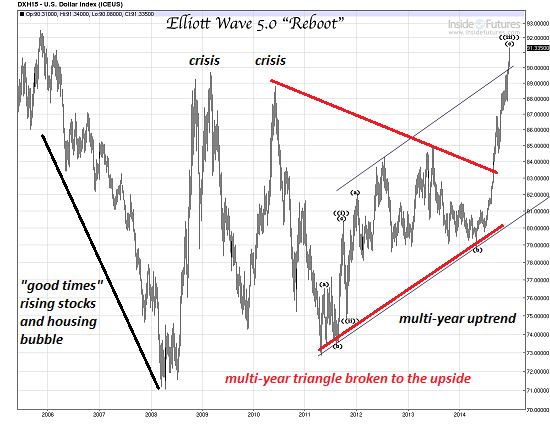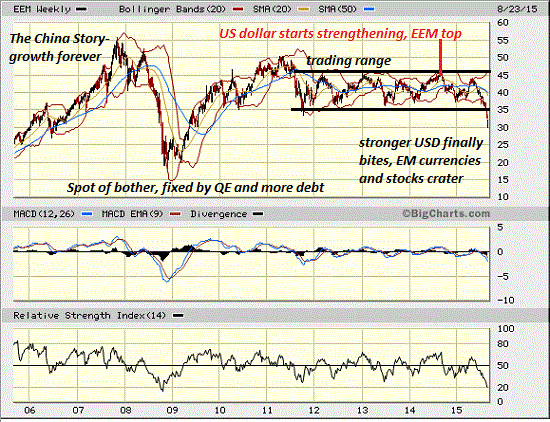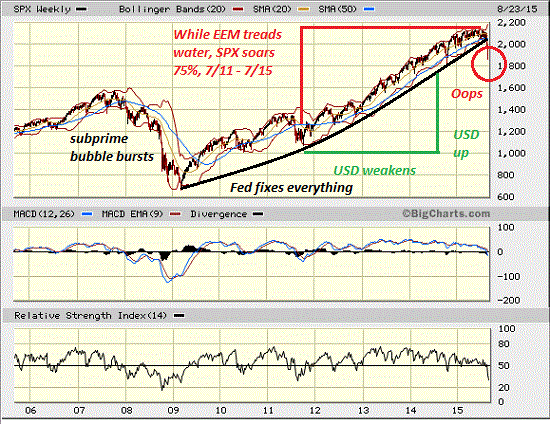Global markets are puking at the prospect of higher yields in the U.S.
There are many reasons for global markets to melt down, but one that doesn't get enough attention is the strong dollar. In effect, global markets are telling the Federal Reserve: don't raise rates--the strong dollar is killing us.
Here's the dynamic that's killing emerging markets' currencies and stocks, the China Story and U.S. corporate profits. In the glory years of a declining U.S. dollar (USD), a vast global carry trade emerged as speculators borrowed money in USD and invested it in high-yield emerging market assets such as stocks, bonds and real estate.
This carry trade was a two-fer: not only were yields much higher in emerging markets, the appreciation of local currencies against the USD provided a currency gain on top of the higher yield.
As the yuan strengthened against the USD, an enormous river of capital flowed into China to take advantage of the revaluation and higher yields in China. How much of this money was borrowed USD is unknown, but it's estimated that Chinese corporations alone borrowed $1 trillion in USD to profit from higher yields in China.
The virtuous benefits of a weakening USD extended to U.S. corporations, which reap 40% to 50% of their total profits from sales overseas. As the USD weakened, U.S. corporations reaped the currency gains every time they reported overseas sales in USD.
Everybody won with the weakening dollar, except the U.S. consumer, who paid more for imported goods. But a funny thing happened in late summer 2014 — the USD started rising against other currencies — by a lot. Suddenly all those profitable carry trades reversed.

Emerging Markets (NYSE:EEM) remained in a trading range for much of 2011-2015, but the strengthening dollar was eating away at the carry trades beneath the surface.

Meanwhile, over in the S&P 500, stocks rose steadily from mid-2011 to mid-2015. But beneath the surface strength of the past year, market technicians noted a deterioration of indicators. Commentators started noting the rising dollar's negative impact on U.S. corporate profits.

Now the carry trades have been abandoned, and market participants are looking at a Fed rate hike with fear and loathing. Why? The USD has already strengthened by 20%. A tick up in U.S. yields would only make the dollar more attractive globally, as traders would get the currency appreciation and a higher yield.
Global markets are puking at the prospect of higher yields in the U.S. The damage delivered by the rising dollar has been severe; a move higher from here might prove fatal to emerging markets and faltering U.S. corporate profits.
